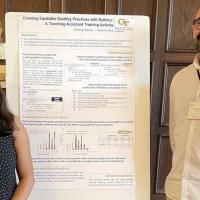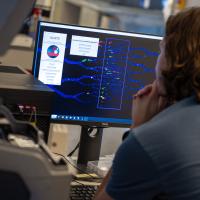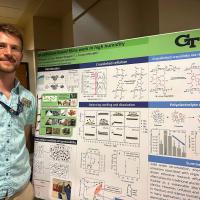2 min read
3 min read
Scientists at the Georgia Institute of Technology and Max Planck Institute for Intelligent Systems in Stuttgart have published a perspectives piece on the different tools used throughout the world that are aiding in the conservation of wildlife and biodiv
3 min read
1 min read
6 min read
Physicists have developed a new model and clearer picture of molecular movements within active matter — bringing science a step closer to designing specific functions into new materials, and understanding emergent behaviors.
4 min read
Researchers develop volcanic tsunami generator to closely study potential natural disasters
2 min read
6 min read
Researchers probe the mechanisms underlying the rhythmic dance that recruits the brain’s immune system
3 min read
3 min read
December 2020 was when the greatest number of people reported experiencing multiple hardships during the pandemic.















